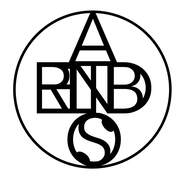 I am proud to be a part of a group of art therapists in this state that are on the road to getting our own license. This has been a long journey and is far from over, but what does this mean and why do art therapists need a specialized license? Currently, art therapists attending school in our state are working towards an LPC. This means that once they have those letters after their name they are a licensed professional counselor. You can read more details on having and LPC HERE. I attended Marylhurst University to get my masters in art therapy. I finished in 1999. A few years later, the program added a few classes and evolved to where students would finish with a masters in art therapy counseling and would be on the track to get and LPC. This was a huge advance in our field and our state, especially being a young profession that only began to evolve into a recognized clinical practice starting in the 1950's. One Oregon Art Therapists Path I spent the first 8+ years of my practice in community mental health. I worked few years in a non-profit outpatient clinic primarily seeing youth in foster care, and then moved on to another non-profit agency in a program specialized in juvenile justice. I was an on-site clinician in a program where youth were in agency foster care or group homes and went to an on-site school. In both of these positions I was hired as a mental health therapist and QMHP (definition below). Both agencies recognized the value and benefits of my clinical training as well as my specialized training in art therapy. These agencies endorsed me as their mental health art therapist and I worked along side other clinicians including psychologists, psychiatrists, principals, teachers, licensed social workers (to name a few), and collaborated on treatment teams as well as provided diagnosis and treatment planning through individual, family and group therapy. From our state site, Oregon.gov: "According to OAR 309-032-1505:(105), a "Qualified Mental Health Professional (QMHP)" means a LMP or any other person meeting one or more of the following minimum qualifications as authorized by the LMHA or designee: (a) Bachelor’s degree in nursing and licensed by the State of Oregon; (b) Bachelor’s degree in occupational therapy and licensed by the State of Oregon; (c) Graduate degree in psychology; (d) Graduate degree in social work; (e) Graduate degree in recreational, art, or music therapy; or (f) Graduate degree in a behavioral science field." In 2006 I went into uncharted territory and opened my own practice. I did this following every rule I was instructed to. I received my ATR, registered art therapist in 2001 with our national credentials board, the ATCB. I took the board certification exam and passed it in 2009, In states with a specialized license for art therapy, this exam is the licensing exam. I have continued to seek consultation with other professionals. I have continued to take continuing education to keep my national art therapy credential in good standing and practice in the most ethical sound manner possible. Many have asked me why don't I just get my LPC. That is an easy answer. I did not go to school to be a counselor. I went to school to be an art therapist. I have formal training in both fine art and clinical practice. I do not say I am a counselor, I do not say I use tools or diagnostic tests other clinical practitioners use. I purely do what I was trained to do as an art therapist and I have a national board that oversees my ethical behavior and practice. If I lived in New Mexico, Kentucky, Maryland or Mississippi I would qualify for a license. Why does Oregon need it's own license for art therapists? There is a website that provides a full overview answering this question HERE From Art Therapy In Oregon's site, "In Oregon some art therapists have been able to attain a license as a professional counselor (LPC). While this seems like progress and might seem like enough it is not. A licensed professional counselor does not require the additional training art therapists have and while the clinical skills are comparable, the specialized training is not acknowledged in this license. Additionally, without title protection any mental health clinician who has not received a Master's in Art therapy currently may promote art therapy as part of their practice even though they have not had the specialized training or experience. For the protection of the public art therapists should have their own license encompassing the ethical scope of practice this specialized training and experience provides." I am proud to be an art therapist. I have sat on committees and boards. For many years I have lecture in schools, at conferences and in my own studio about the field to inform the public about the field. I also teach art as well as make and show my own. I fully believe in the power of creativity and problem solving. Again, I am not looking to be an LPC. I am looking to continue to provide the services I have been providing since 1999 as an art therapist. If you are an art therapist in Oregon and would like to join our task force visit our site HERE. There are meetings the fourth Sunday of every month and we also have a closed Facebook group to keep those up on the effort who cannot make our meetings.
1 Comment
Judy Locher, ATR.-BC
6/26/2017 11:09:47 am
I joined the group to get the licensure, and forgot the name. I'm called Judyith in it! I live in Grants Pass, so can't attend the meetings
Reply
Your comment will be posted after it is approved.
Leave a Reply. |
Life is art...Welcome to my blog! Find out more about me HERE Archives
September 2020
|

Acknowledgements: It is with deep respect and gratitude that I acknowledge that I reside and work on the traditional homelands of the Cowlitz and Clackamas tribes. I acknowledge and honor with reverence those who have stewarded this land, through colonization, systemic racism, structural racism, and genocidal policies. Additionally, I hold in the highest esteem those who have been historically enslaved upon this land, as well as those who may have been excluded to this land due to race, national origin, citizenship, and ethnicity. I offer some of my art therapy services at no charge to those who's homelands I occupy. If this applies to you or someone you know and you'd like to find out more please contact me.
Beth Ann Short LLC
Beth Ann Short LLC

 RSS Feed
RSS Feed